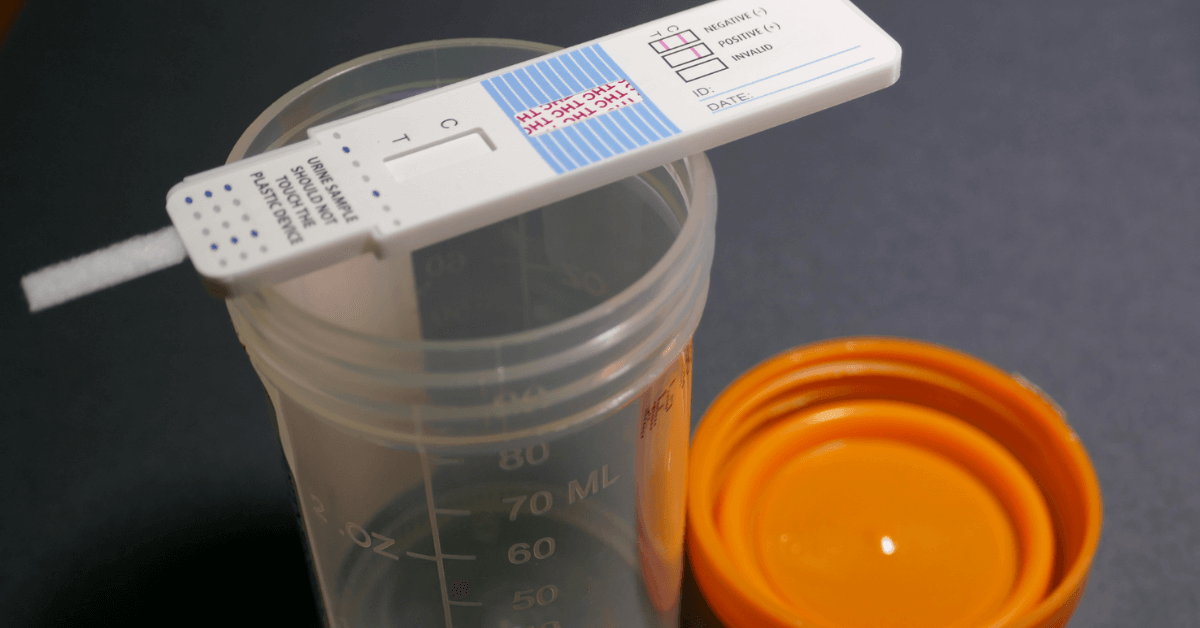How Long Does CBD Last?
Cannabidiol (CBD) is all the rage in the wellness world. It can reduce stress, anxiety, depression, provide better sleep, and less pain. But, there’s still much we don’t know about this cannabis plant substance, and many CBD users are wondering how long it stays in their systems.
I’ve used several CBD products, from CBD topicals, CBD edibles, CBD oil, and more, and I talked with a healthcare professional. Here’s exactly how long CBD will stay in your system and what it depends on.
Quick Summary
- CBD is extracted from the cannabis sativa plant.
- How long CBD stays in your system depends on the form in which you take it, the dose, and your overall condition.
- CBD is proven to help with several health conditions.
What is CBD?
CBD is a cannabinoid found in cannabis plants. CBD and THC are the two main active compounds in the cannabis plant. But, unlike THC, CBD isn’t intoxicating, which means it won’t make you feel high.
CBD is proven to help with anxiety and depression, alleviate cancer symptoms, chronic pain, sleep issues, and many other health conditions. It has dramatically risen in popularity in recent years, and there’s a wide range of CBD products available nowadays, such as CBD capsules, CBD oils, CBD gummies, CBD topicals, CBD vapes, and more.
CBD became legal in 2018 under the Farm Bill. This means hemp-derived CBD products with less than 0.3% THC are legal. However, CBD products aren’t approved by the FDA, so they can contain different doses of CBD and THC.
A CBD product can contain three kinds of CBD:
- Full-spectrum CBD — Contains CBD and all other cannabis plant compounds, including THC.
- Broad-spectrum CBD — Contains CBD and other cannabis plant compounds but no THC.
- CBD isolate — Only contains CBD.

How Does CBD Work?
CBD works by interacting with the endocannabinoid system (ECS). This system is in charge of various body functions, such as mood, appetite, sleep, pain, and others.
ECS has two cannabinoid receptors:
- CB1 — In the brain
- CB2 — In the immune system
CBD interacts with these receptors and stimulates the amount of endocannabinoids in the body. Increased levels of cannabinoids reduce inflammation, relieve pain, and help you feel relaxed.
How Long Do the Effects of CBD Oil Last?
How long do the effects of CBD oil last depends on several factors, such as how much CBD oil has, your weight, age, metabolism, diet, and other factors. The effects of CBD oil are usually noticeable between four and six hours.
For healthy individuals who consume pure CBD, the elimination of half-life in the bloodstream is 14 to 17 hours. Considering it takes about five half-lives to eliminate a drug from the human body, CBD stays in our system for around three and a half days.
Most users need to wait 15 minutes for CBD effects to kick in when using CBD oil, and it can take up to an hour. If you consume CBD oil orally, under the tongue, you can feel the effects even sooner than this.
What are the Effects of CBD?
The effects of CBD are:
- Less pain — Studies show CBD can help with pain management and is highly effective in treating chronic pain. CBD can also reduce joint pain from osteoarthritis and treat arthritis pain.
- Anxiety — CBD can be used to treat different anxiety disorders, including depression.
- Alzheimer’s disease — CBD can help people at risk of developing Alzheimer’s disease by regulating the levels of IL-33 protein and removing plaque from the brain, which leads to this disease and other dementia.
- Better digestive system — CBD can help gastrointestinal inflammation, which leads to an improved digestive system.
- High blood pressure — CBD can reduce high blood pressure.

How Long Does CBD Oil Stay In Your System?
How long does CBD oil stay in your system depends on factors such as:
- Meal timing and diet — How much you eat and what you eat impacts how long CBD stays in your body. High levels of CBD are present in the bloodstream after a high-fat meal. But, if you take CBD oil on an empty stomach and don’t eat straight away, CBD is more likely to leave your system sooner.
- Medication and liver disease — Some medical conditions also affect how long CBD stays in your system. CBD is metabolized by the liver. The liver contains enzymes that break down medications, and some medications can increase or decrease the activity of these enzymes. Medication can be metabolized faster or slower than normal in this case, and CBD can interact with medications.
- Frequency of use — If you use CBD oil regularly, it can build up over time and stay in your system for longer. CBD is highly soluble in fat, so it can build up in the fatty tissues over time and stay in our system for weeks.
- CBD dose — The dose of CBD in the oil also plays a critical role. The larger the dose, the longer it stays in your system.
Overall, CBD will stay in your system for several hours to several weeks. This depends on your system, how often you’re taking CBD, and the dose of CBD. It’s best to apply CBD oil via a dropper under your tongue. Hold it for about a minute before swallowing, so the oil can bypass the digestive system, and it’s absorbed more quickly.
How Long Will CBD Last in Your System?
CBD effects and how long it’ll stay in your system will depend on your diet, frequency of use, metabolism, and other factors. For example, vaping CBD results in almost immediate effects. But, the effects have the shortest duration as CBD leaves your body in hours. CBD oil, transdermal patches, and other methods last for longer.
Make sure to start with a small dose if you’ve never used CBD before, and increase as needed. Also, consult your doctor if you’re taking other medication. Finally, buy CBD online from a certified manufacturer, and get all its multiple benefits.
References
Farm Bill. (n.d.). Www.usda.gov. https://www.usda.gov/farmbill
Mlost, J., Bryk, M., & Starowicz, K. (2020). Cannabidiol for Pain Treatment: Focus on Pharmacology and Mechanism of Action. International journal of molecular sciences, 21(22), 8870. https://doi.org/10.3390/ijms21228870
Hammell, D. C., Zhang, L. P., Ma, F., Abshire, S. M., McIlwrath, S. L., Stinchcomb, A. L., & Westlund, K. N. (2016). Transdermal cannabidiol reduces inflammation and pain-related behaviours in a rat model of arthritis. European journal of pain (London, England), 20(6), 936–948. https://doi.org/10.1002/ejp.818
Blessing, E. M., Steenkamp, M. M., Manzanares, J., & Marmar, C. R. (2015). Cannabidiol as a Potential Treatment for Anxiety Disorders. Neurotherapeutics: the journal of the American Society for Experimental NeuroTherapeutics, 12(4), 825–836. https://doi.org/10.1007/s13311-015-0387-1
Cooray, R., Gupta, V., & Suphioglu, C. (2020). Current Aspects of the Endocannabinoid System and Targeted THC and CBD Phytocannabinoids as Potential Therapeutics for Parkinson’s and Alzheimer’s Diseases: a Review. Molecular Neurobiology, 57(11), 4878–4890. https://doi.org/10.1007/s12035-020-02054-6
Gyires, K., & Zádori, Z. S. (2016). Role of Cannabinoids in Gastrointestinal Mucosal Defense and Inflammation. Current neuropharmacology, 14(8), 935–951. https://doi.org/10.2174/1570159×14666160303110150
Gyires, K., & Zádori, Z. S. (2016). Role of Cannabinoids in Gastrointestinal Mucosal Defense and Inflammation. Current neuropharmacology, 14(8), 935–951. https://doi.org/10.2174/1570159×14666160303110150
Birnbaum, A. K., Karanam, A., Marino, S. E., Barkley, C. M., Remmel, R. P., Roslawski, M., Gramling-Aden, M., & Leppik, I. E. (2019). Food effect on pharmacokinetics of cannabidiol oral capsules in adult patients with refractory epilepsy. Epilepsia, 60(8), 1586–1592. https://doi.org/10.1111/epi.16093
